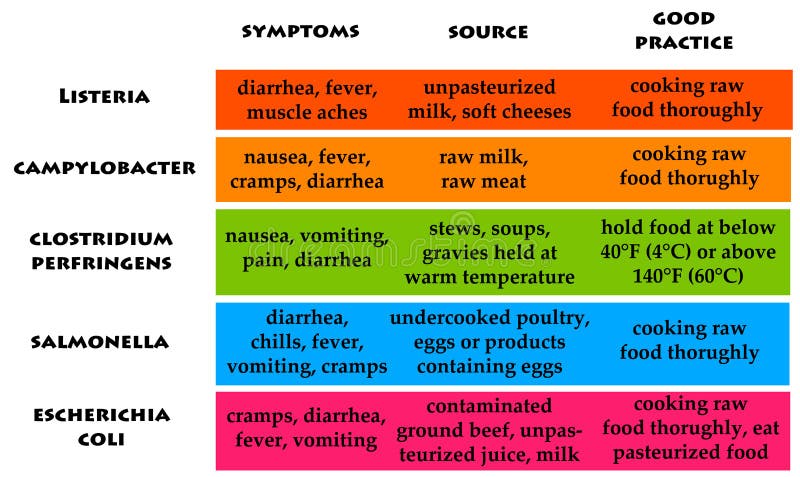The 23rd World Insights
Exploring the untold stories and events from around the globe.
When Dinner Turns Deadly: Surviving Food Poisoning Fiascos
Discover chilling stories and expert tips on surviving food poisoning disasters. Don't let dinner turn deadly—read more now!
Top 10 Symptoms of Food Poisoning You Should Never Ignore
Food poisoning is a serious condition that can arise from consuming contaminated food or beverages, and recognizing its symptoms early is crucial for effective treatment. Among the numerous signs to be aware of, the top 10 symptoms of food poisoning you should never ignore include:
- Nausea
- Vomiting
- Diarrhea
- Abdominal cramps
- Fever
- Chills
- Fatigue
- Headache
- Mild dehydration
- Blood in stool
If you experience any of these symptoms after eating, it is essential to seek medical attention promptly. Ignoring symptoms like severe abdominal pain or persistent vomiting can lead to more serious health issues, including dehydration or kidney failure. Always prioritize your health and safety; if in doubt, consult a healthcare professional to ensure you receive the proper care you need.

How to Safely Handle Leftovers: Your Ultimate Guide
Handling leftovers safely is crucial for preventing foodborne illnesses and ensuring your meals remain delicious. First, always cool leftovers promptly within two hours of cooking. Divide large portions into smaller containers to speed up the cooling process. Use airtight containers to store your leftovers, which not only keeps them fresh but also minimizes the risk of cross-contamination. When reheating, make sure to heat the food to an internal temperature of 165°F to kill any potential bacteria. It's also essential to smell and check your leftovers before eating; if something seems off, it's safer to toss it.
When it comes to storing your leftovers, it's important to label them with the date they were cooked. This practice will help you track how long they've been in the fridge. As a general rule, most leftovers can be safely stored in the refrigerator for about 3-4 days. If you don’t plan to eat them within that timeframe, consider freezing them to extend their shelf life. Foods can be kept frozen for months, but it’s best to consume them within 3-4 months for optimal taste and texture. Remember, the key to safely enjoying your leftovers is proper storage and diligent attention to expiration times!
What to Do if You Suspect Food Poisoning: A Step-by-Step Approach
If you suspect food poisoning, it's essential to act quickly to minimize discomfort and prevent complications. Start by assessing your symptoms. Common signs include nausea, vomiting, diarrhea, abdominal pain, and sometimes fever. Stay hydrated by sipping on clear fluids like water or broth. Avoid solid foods until your symptoms subside. If you're experiencing severe symptoms, such as high fever, prolonged vomiting, or signs of dehydration, it’s crucial to seek medical attention immediately.
While waiting for medical assistance or if symptoms remain mild, follow these steps:
- Keep a record of symptoms, including when they started and any food consumed in the preceding days.
- Rest as much as possible to allow your body to recover.
- If you can tolerate it, gradually reintroduce bland foods like bananas, rice, applesauce, or toast.
- Monitor your symptoms closely, and if they worsen or do not improve in a few days, consult a healthcare professional.